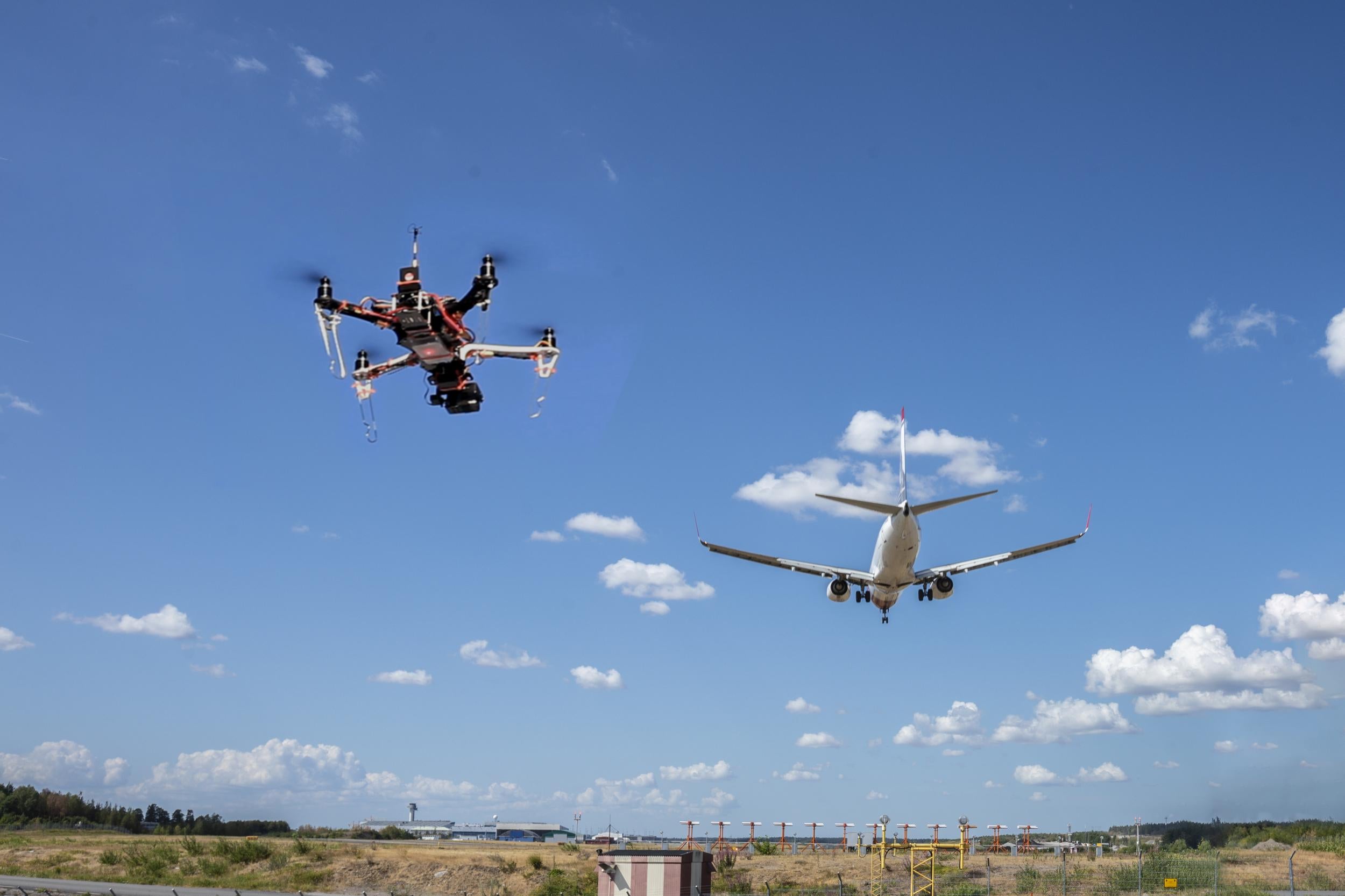How will the new drone laws improve aviation safety?
The legislation follows a year-on-year increase in drone incidents

Your support helps us to tell the story
From reproductive rights to climate change to Big Tech, The Independent is on the ground when the story is developing. Whether it's investigating the financials of Elon Musk's pro-Trump PAC or producing our latest documentary, 'The A Word', which shines a light on the American women fighting for reproductive rights, we know how important it is to parse out the facts from the messaging.
At such a critical moment in US history, we need reporters on the ground. Your donation allows us to keep sending journalists to speak to both sides of the story.
The Independent is trusted by Americans across the entire political spectrum. And unlike many other quality news outlets, we choose not to lock Americans out of our reporting and analysis with paywalls. We believe quality journalism should be available to everyone, paid for by those who can afford it.
Your support makes all the difference.New laws introduced today will restrict all drones from flying above 400 feet or within one kilometre of airport boundaries.
The legislation follows a year-on-year increase in the report of drone incidents with aircraft, with 93 reported in 2017.
The measures are hoped to reduce the possibility of damage to windows and engines of planes and helicopters.
Further laws requiring owners of drones weighing 250 grams or more to register with the Civil Aviation Authority (CAA), in addition to online safety tests for drone pilots, will come into force on 30 November 2019.
New research shared by the CAA today found that 77 per cent of UK citizens felt more regulation was required in relation to drone usage, with 75 per cent of drone users in agreement.
The majority of those surveyed - including 96 per cent of drone users - considered it vital for drone pilots to adhere to the rules and guidelines of the CAA’s Dronecode, a set of rules introduced to promote safe and responsible drone use.
Over 2,000 UK adults and more than 350 drone users were questioned for the study, with safety cited as their primary concern.
“As recreational drone use becomes increasingly widespread across the UK it is heartening to see that awareness of the Dronecode has also continued to rise - a clear sign that most drone users take their responsibility seriously and are a credit to the community,” said Jonathan Nicholson, assistant director at the CAA.
“Drones are here to stay, not only as a recreational pastime, but as a vital tool in many industries - from agriculture to blue-light services - so increasing public trust through safe drone flying is crucial.”
The research also found that mobile apps providing information on airspace and safety alerts are growing in favour with drone users, who regard them as essential in regulating the sector.
Join our commenting forum
Join thought-provoking conversations, follow other Independent readers and see their replies
Comments